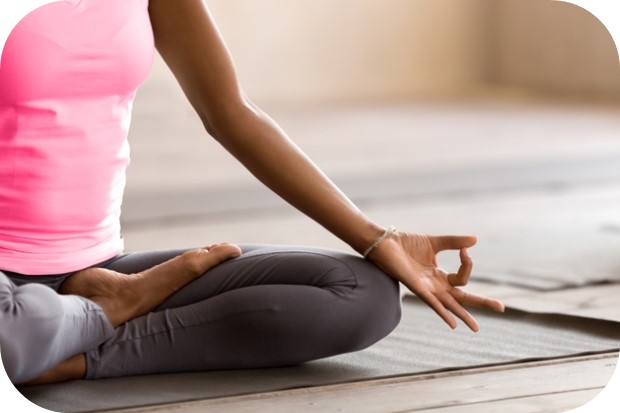Make more time for mindful moments
We've curated the perfect Spotify playlist to help you keep calm and mindful throughout the day.
Listen now
“If you're feeling overwhelmed or anxious or if you just want to get into a pattern of staying calm for some inevitable point in your life when you may feel that way – take some time today to start a healthy new habit: mindfulness,” advises Dr Mosima Mabunda, Head of Wellness at Vitality South Africa. "You’ll see for yourself how this can help bolster your brain and soothe your soul."
Dr Mabunda’s tip to start this healthy habit comes at the launch of the Vitality Habit Index, new research published in partnership with the London School of Economics that delves into the science behind habit formation and why healthy habits – like mindfulness – are so integral to better overall health.
A big part of mindfulness is reminding yourself to take notice of your thoughts, feelings, body sensations and environment in the moment. Here, it’s all about the present and part of practising mindfulness means bringing yourself back to the here and now rather than worrying about what’s been or is still to come.
These habits can range from easy, everyday activities such as taking a few deep breaths before starting the day, to more structured actions such as journaling. For many people, mindfulness goes hand-in-hand with meditation as a way to direct your attention away from negative thoughts and focus instead on appreciating the world around you.
One way to describe meditation is as a type of exercise or ‘strength training’ for your mind. Here, you build and develop the ability to stay cool, calm and mentally resilient when you face stress or pressure.
Research has found that regularly practising meditation can help to:
Meditation helps to reduce activity in a part of the brain called the amygdala which causes our reaction to stress. When this is more controlled, we are better able to stay calm in a stressful moment.

Meditation helps to sharpen your focus as it activates new areas in the brain that help you to concentrate better.

Meditation has shown to help relieve chronic pain by triggering the release of endorphins, our natural painkillers. It is also thought to boost pain tolerance by lowering cortisol, a leading cause of inflammation.

“As with all new behaviours that become habits, getting started is sometimes the hardest”, says Dr Mabunda. “I recommend what’s called the 5-4-3-2-1 approach which you can even try with your kids to encourage attention and awareness”. As part of this exercise, make a note of:
And the more you do this, the more likely mindful practices like this will become a habit – for the long run.
According to the Vitality Habit Index, once you’ve set a mindfulness or meditation goal, start small by choosing a related activity that is easy and practical to do, often. Keep up the activity and only increase the intensity once the action has been repeated for between 4 and 6 weeks.
Whether it’s work, family or all the other responsibilities in-between, our minds are often preoccupied with endless to-dos and distractions that steal our attention. By committing to practise mindful habits on a daily basis, you’re more likely to gain a greater sense of balance and fulfilment in your life.
TOP TIP: As part of the Global Vitality Conference, we partnered with Headspace, a digital platform that offers guided meditation. These meditations teach you to be more present for everything you do. And with practice, you’ll feel clearer, calmer, kinder and sharper. To try the app for free, visit the Headspace site.
Interested in building healthier habits for a longer, healthier life? Grab your copy of the Vitality Habit Index.
We've curated the perfect Spotify playlist to help you keep calm and mindful throughout the day.
Listen now